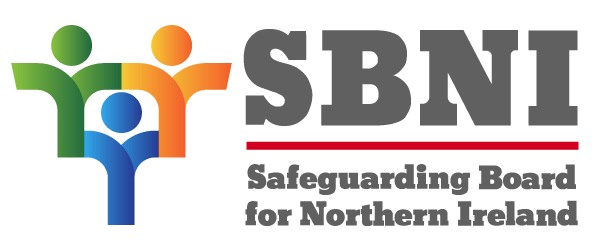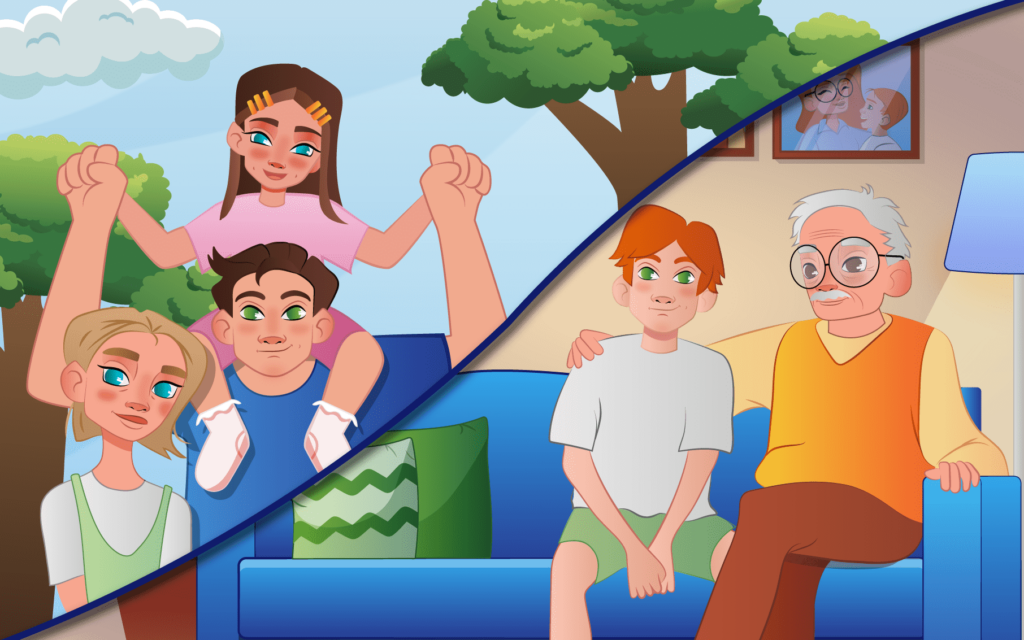Online Blackmail
Online blackmail is when someone threatens to share private information, images or videos of a person online unless something is done for them. Young people sometimes send nude pictures or videos to flirt, or have fun with other people online. These people might be known to young people in person or only online. Young people may believe that images and videos won’t be shared any further. Unfortunately, there are some offenders online who will try to trick or pressure young people into sending nude images or videos of themselves. This can happen through their favourite social media app, website or platform.
Once an offender has a nude image or a video, they may threaten to share it publicly, unless the young person meets a financial demand (Financially Motivated Sexual Extortion – often referred to as ‘Sextortion’).
‘Sextortion’ may present as:
- Financial blackmail using sexual / indecent images that have been sent to an offender a child or young person has had contact with online.
- Financial blackmail using images that have been stolen from a child or young person, taken through hacking or have been faked using image altering technology.
- Blackmail using sexual/indecent images that a child or young person has sent to an offender, but with a demand for something other than money. This might be a demand for them to do something they don’t want to, like give them use of your bank account. Sometimes the offender may ask for more nude images.
Click or Tap this box to learn more about where you can find support
If a child has been a victim then they are not alone and support is available.
- Seek advice from Children’s Social Services Gateway team using the contact details below. Don’t worry if you aren’t sure about your health trust. The gateway team will be able to direct you to the right person:
- Belfast HSCT Gateway: 028 9050 7000
- South Eastern HSCT Gateway: 0300 1000 300
- Northern HSCT Gateway: 0300 1234 333
- Southern HSCT Gateway: 0800 783 7745
- Western HSCT Gateway: 028 7131 4090
- Out of office hours and bank holidays – all Trust areas: 028 9504 9999
- If you have concerns about online child sexual abuse including grooming and blackmail, you can report can report to CEOP.
- The Domestic and Sexual Abuse Helpline is a free, 24/7 helpline and webchat for anyone over 16 with concerns about domestic and sexual abuse. Call 0808 802 1414 or email [email protected]
- The NSPCC helpline is available for information and advice about a child’s safety or wellbeing on 0808 800 5000 or email [email protected]
- If you or someone you know is in distress or despair contact Lifeline for free on 0808 808 8000 or text 18001 0808 808 8000.
What you need to know
Typically, a person uses a false identity to befriend a victim via social media. The exchange may start with flirting or flattery and involves a blackmailer grooming a child and manipulating, tricking or coercing them into sharing sexual photos, videos or livestreams. Once sexual content has been shared, the blackmailer will extort their victim by threatening to publish and share the images or recordings unless demands are met. Typical demands include money or more sexual material.
Watch the video below from the police that shows how an online chat can quickly develop into blackmail. The PSNI website provides further advice and information.
Offenders who blackmail are highly skilled. To get children and young people to share nude images or videos, offenders may:
- Pretend to be forming a real friendship or romantic relationship with the child or young person, this may include pretending to be another child or young person
- Give flattery and compliments, encouraging a child or young person into being more open
- Offer something of value, such as a modelling contract, money or online gaming credits
- Claim that they’ve hacked the child or young person’s device and already have access to explicit and embarrassing content of them, which they then threaten to share publicly
Being blackmailed is a frightening experience and can have a devastating impact on victims and the personal and psychological toll they face can be immense. Embarrassment, fear of judgement or getting into trouble is often a big barrier to children and young people reporting or telling someone what has happened to them. But it is important that young people and their families do not let embarrassment or the fear of getting into trouble stop them from reporting to the police.
Recently, this crime has seen a significant rise in boys as victims of online sexual abuse, with the Internet Watch Foundation reporting a 137% increase in imagery of boys in 2022.
The NCA’s CEOP Education team have produced an article for parents and carers to understand why boys are less likely to speak out, and what you can do to support your child or young person.
Watch the video below from the police about a victim’s experience of online blackmail ‘sextortion’.
For parents, carers or other adults involved in a child’s life, it can be difficult to know what to say and do if they speak out about online blackmail and abuse. It’s important to listen, reassure and report. Try not to panic and remember the following:
- Don’t respond to demands and don’t pay up
- End all communication with the blackmailers, do not continue to message them
- Block the blackmailer on all platforms and change your password on all accounts
- Keep evidence. Keep a record of what has been happing. Take screenshots and save messages. This will help you to prove what has been happening when reporting.
- Blackmailers are breaking a number of laws so make sure to report any concerns to the police on 101, report it online or phone 999 in an emergency
- Having early, often and open conversations with a child or young person about their online activity can help them understand who to trust online and empower them to avoid or safely deal with inappropriate contact. Internet Matters provides lots of advice and tips about how to start the conversation
- Discuss how easy it is for someone to hide their identity online and the risks with sharing sexual messages, images, videos and/or livestreams with strangers or new online ‘friends’ that they don’t know in real life
- Help them to recognise and report inappropriate and unhealthy communication, this might include:
- Engaging with strangers or ‘friends’ that they haven’t met offline
- Conversations about sex or sexual activity
- Receiving or requests for nudes, sexual videos or livestreams
- Requests to share personal info and asking to meet up offline
- Receiving gifts and money from someone they haven’t met
- Someone forcing them to do things, including sexual activity
- Anything that makes a child feel unsafe or uncomfortable
- Make sure that a child understands the basics:
- Keep it private and don’t share sensitive, private of personal information online. Use privacy settings to protect their personal accounts and content
- Keep their guard up, be careful about who they befriend online and be mindful that people online aren’t always who they say they are, predators and criminals are skilled at faking their identity! Be careful about who they befriend online.
- Ignore, block, report and tell a trusted adult if anything upsets them or makes them feel uncomfortable online
- Always avoid nudity and never share intimate and sexual images, videos or livestreams in online spaces. If a child has shared an image of themselves then encourage them to report it and seek help


